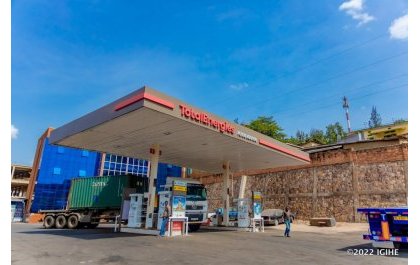Why Fuel Prices Have Increased in Rwanda

Rwanda has announced new fuel prices, with the Rwanda Utilities Regulatory Authority (RURA) confirming a significant rise across petroleum products. Under the latest pricing, a liter of petrol now costs 1,989 Rwandan Francs, up from 1,862 Frw, while diesel has increased from 1,808 Frw to 1,900 Frw.
This marks an increase of 127 Frw per liter for petrol and 92 Frw for diesel one of the most notable fuel price hikes Rwanda has seen in recent years.
Two Main Reasons Behind the Price Hike
Antoine Marie Kajangwe said , Permanent Secretary in the Ministry of Trade and Industry (MINICOM), explained that the increase in fuel prices is the result of two major factors.“Simply put, the price rise was driven by two things,” he said. “In July, the government reinstated VAT on petrol. Once you add 18% VAT to any product, the price inevitably goes up. That explains part of the increase you are seeing.”
He added that supply chain disruptions over the past two months also played a major role. “Most of our imported fuel typically comes through Tanzania because it’s cheaper than sourcing from Kenya,” Kajangwe said. “But due to recent logistical challenges, many importers shifted to Kenya where fuel is more expensive and that had a ripple effect on local prices.”
How International Market Trends Affect Local Prices
Rwanda adjusts fuel prices every two months, reflecting international market conditions and the time it takes for shipments from Gulf nations to reach Kigali.
On November 15, 2025, a barrel of oil was trading at $60.09, down from $64.10 on September 1. Prices fluctuated throughout early November, ranging from $58 to $60.98 per barrel.
Local pump prices are influenced by:
global oil prices over the previous two months,
transport and shipping costs from Dar es Salaam or Mombasa to Kigali,
the exchange rate, and
VAT.
Fuel Imports Shift From Tanzania to Kenya
According to Claudien Habimana, Managing Director of Société Pétrolière Ltd (SP), the increased reliance on the Kenyan corridor has had one of the biggest impacts. “At least 99% of Rwanda’s fuel used to come through Tanzania,” he explained. “But due to delays in offloading ships and security challenges during the Tanzanian election period, more fuel was imported via Kenya and Kenyan prices are higher.”
The shift is notable:
In September 2025, 34% of petrol came through Kenya and 66% through Tanzania.
In October, imports through Tanzania jumped back to 87%, with Kenya supplying 13%.
Overall, Kenya supplied 23% of Rwanda’s petrol in the past two months, up from just 1%.
“Fuel from Kenya is costlier,” Habimana said. “Naturally, prices at the pump increased.”
He added that diesel prices would have been even higher without government subsidies. The government absorbed 78 Frw per liter of diesel, but no subsidy was applied to petrol.
Impact on Transporters and Daily Life
Transporters say the rising prices are tightening already thin profit margins.
Cyprien Musabirema, a truck driver operating between the Southern Province and Kigali, said fuel costs have increased dramatically. “I used to spend around 260,000 Frw on fuel for a trip. Now it’s around 320,000 Frw,” he said. “Clients don’t want to increase transport fees, so we end up absorbing the loss to avoid losing business.”
Motorbike taxi operators (abamotari) are also struggling.
Modetse Nsengiyumva, a moto rider, said: “When you tell a customer that fuel has gone up, he tells you his salary hasn’t increased. But our profits keep shrinking.”
A rider using petrol priced at 1,989 Frw per liter said his daily profit can barely exceed 2,000 Frw after covering fuel and other expenses.
Will This Affect Commodity Prices?
Kajangwe said the government is monitoring the situation and working on ways to stabilize prices, including making fuel sourced from Kenya cheaper over time.
He insisted that transport companies should not use the price increase as a pretext for unjustified inflation. “Based on our analysis, transport costs should rise by only 4 to 6 Frw per kilometer for goods coming from the East, and 6 to 8 Frw for goods from Rusizi,” he noted. “We do not expect a major impact on general commodity prices.”
However, economic analyst Teddy Kaberuka believes any increase in fuel costs inevitably affects consumer prices. “When petrol and diesel go up, the cost of moving goods goes up too,” he said. “This pushes market prices higher, whether we want it or not. People end up buying fewer goods, and consumption falls.”
How Rwanda Compares in the Region
Fuel prices across East Africa currently stand at:
Uganda: 1,420 UGX ≈ 2,059 Frw per liter
Kenya: 184.38 KES ≈ 2,069 Frw
Tanzania: 2,752 TZS ≈ 1,635 Frw
Burundi: 4,000 BIF ≈ 1,967 Frw
DR Congo: $1.223 ≈ 1,773 Frw

SUBSCRIBE TO OUR NEWSLETTER












